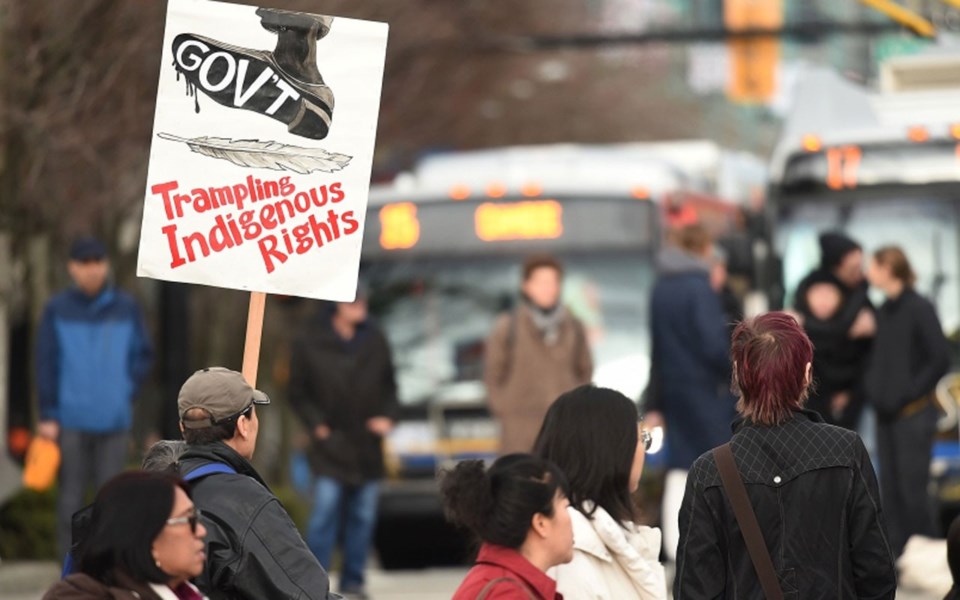Two houses of the Wet'suwet'en have launched a legal challenge of the Coastal GasLink pipeline, but their challenge is not based on aboriginal rights or title arguments.
Two house chiefs have applied to the Federal Court of Canada to halt the $6.6 billion natural gas pipeline on the basis that it would violate Canada's commitment under the Paris Agreement to reduce greenhouse gases.
"The climate crisis is already hitting our House territories hard," Alphonse Gagnon, whose house chief title is Dini Ze' Lho'imggin, said in a news release.
"You only have to look at the shrinking Hudson Bay Mountain glacier and count the salmon. If Canada is allowed to continue approving infrastructure for fracked gas projects on a 40-year timeline, our territories will become a wasteland before the project licenses expire."
"Since colonization, the feverish pace of industrialization has created a climate crisis because Indigenous people were pushed aside from protecting the lands from which they came," said Warner Naziel (Dini Ze' Smogilhgim).
"It's time for Indigenous people to assume our traditional forms of government, to begin that process of healing the biosphere."
The Wet'suwet'en have a dual governance system. While all five elected band councils support the Coastal GasLink project, some hereditary chiefs oppose it.
@nbennett_biv
To view the original story, click here.




